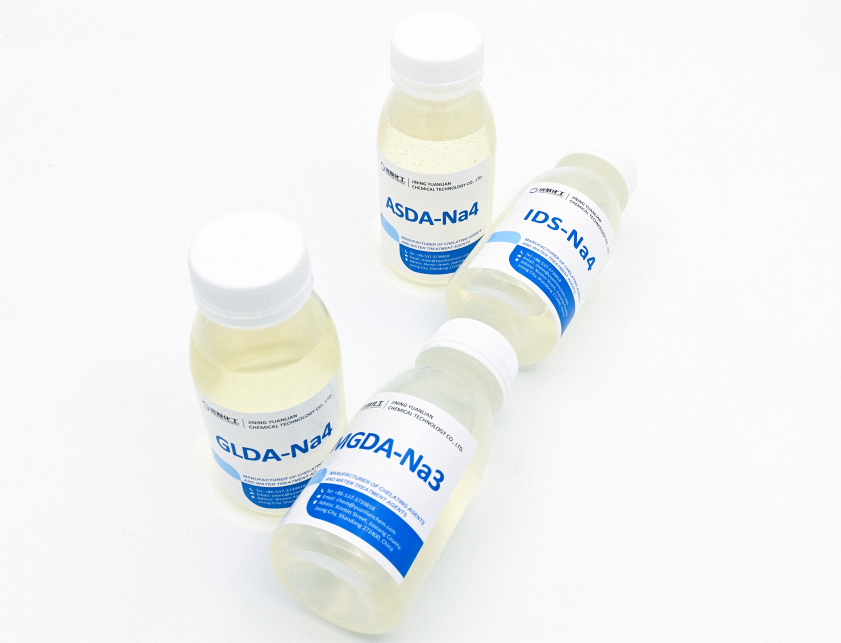
Trisodium Methylglycinediacetate: The Sustainable Chelating Agent Revolutionizing Cleaners
Trisodium Methylglycinediacetate (MGDA-3Na) is emerging as a game-changing sustainable chelating agent in the European chemical market. As industries across the EU increasingly prioritize environmental responsibility and regulatory compliance, this versatile, biodegradable compound offers an effective solution for formulators seeking to replace traditional, less eco-friendly alternatives.

What is Trisodium Methylglycinediacetate (MGDA-3Na)?
MGDA-3Na is a synthetic, biodegradable amino polycarboxylate with the chemical formula C₇H₈NNa₃O₆ and molecular weight of 271.1 g/mol (CAS: 170492-24-7). As a powerful chelating agent, it effectively binds to metal ions such as calcium, magnesium, and iron, preventing them from interfering with cleaning processes and product stability.The compound typically appears as a white to light yellow powder or granules with strong hydrophilic properties, making it highly soluble across various temperatures—over 500g/L at 20°C, increasing to approximately 700g/L at 80°C, and maintaining about 300g/L even at 0°C.
Key Properties and Advantages
Environmental Profile
MGDA-3Na stands out for its excellent environmental credentials, boasting a biodegradation rate of >80% over 28 days according to OECD 301D certification. This positions it favorably compared to traditional chelating agents like EDTA, which demonstrate poor biodegradability.
Technical Performance
With a chelating capacity of 330mg Ca²⁺/g and 150mg Fe³⁺/g, MGDA-3Na effectively sequesters hardness ions and heavy metals. It maintains stability across a broad pH range (3-12) and withstands temperatures up to 120°C without decomposition, making it suitable for various industrial applications.
Safety Profile
Extensive research, including long-term studies by BASF, has demonstrated that MGDA-3Na has no carcinogenic properties and is safe for use in consumer products.
Applications Across Industries
Detergents and Cleaning Products
In laundry and automatic dishwashing detergents, MGDA-3Na significantly enhances cleaning performance by neutralizing water hardness and improving stain removal, particularly for challenging stains like blood, milk, ink, natural oils, and sebum. It also stabilizes peroxide bleaches such as sodium perborate and sodium percarbonate.
Industrial Cleaning
MGDA-3Na serves as a professional-grade water treatment chemical with effective descaling and anti-scaling properties. It can dissolve various types of industrial scale and insoluble salts while exhibiting excellent redissolving capability for metal salts and hydroxides.
Personal Care and Cosmetics
The compound's mild nature and chelating properties make it suitable for personal care products where it helps stabilize formulations and improve efficacy.
Market Perspective and Growth Trends
The global market for methylglycinediacetate was valued at $660 million in 2024 and is projected to reach $1.43 billion by 2032, growing at a compound annual growth rate (CAGR) of 10.2%. This robust growth is driven by increasing environmental regulations and the ongoing replacement of traditional chelators across multiple industries.Global demand for MGDA is expected to reach 386,000 metric tons by 2023, reflecting its accelerating adoption as a preferred sustainable chelating solution.
Regulatory Compliance in the European Market
For companies considering MGDA-3Na in products destined for the European market, compliance with several key regulations is essential:
-
EU REACH Regulation (EC) No 1907/2006
-
Detergent Regulations
-
EU CLP Regulation (EC) No 1272/2008
-
BPR Regulation (EU) No 528/2012 for biocidal products
The European Chemicals Agency (ECHA) continues to evaluate substances under the Community Rolling Action Plan (CoRAP), making thorough registration and compliance essential for market access.
MGDA-3Na vs. Traditional Chelating Agents
Compared to conventional options, MGDA-3Na offers distinct advantages:
| Chelating Agent | Biodegradability | Toxicity Profile | Regulatory Status |
|---|---|---|---|
| MGDA-3Na | High (>80% in 28 days) | Favorable, non-carcinogenic | Increasingly preferred |
| EDTA | Low | Moderate | Facing restrictions |
| NTA | Moderate | Potential carcinogen | Restricted in some applications |
| Phosphonates | Variable | Environmental concerns | Increasing scrutiny |
This comparison highlights why MGDA-3Na is becoming the chelating agent of choice for forward-thinking formulators in Europe's sustainability-focused market.
Supplier Landscape
Major MGDA suppliers include industry leaders like BASF and Nouryon, alongside specialized manufacturers such as Shandong Yuanlian Chemical, Lishui Boret Chemical, and Changzhou Deye Chemical. The raw material L-alanine is predominantly supplied by companies like Hengyuan Biology and Fengyuan Biology, with Huaheng Biology commanding over 60% of the global market.
Conclusion: The Future is Sustainable
Trisodium Methylglycinediacetate represents the future of chelation technology—delivering outstanding technical performance while aligning with Europe's stringent environmental standards and sustainability goals. As regulatory pressure on traditional chelating agents intensifies and consumer preference for eco-friendly products grows, MGDA-3Na offers formulators a competitive edge through enhanced environmental profiles without compromising performance.
For manufacturers and brands targeting the European market, adopting MGDA-3Na is not just a regulatory consideration but a strategic business decision that positions products favorably in an increasingly sustainability-focused marketplace.
Yuanlian Chemical specializes in the production of polyaspartic acid (PASP),tetrasodium iminodisuccinate(IDS), GLDA, MGDA etc. with stable quality and excellent quantity!





Contact us